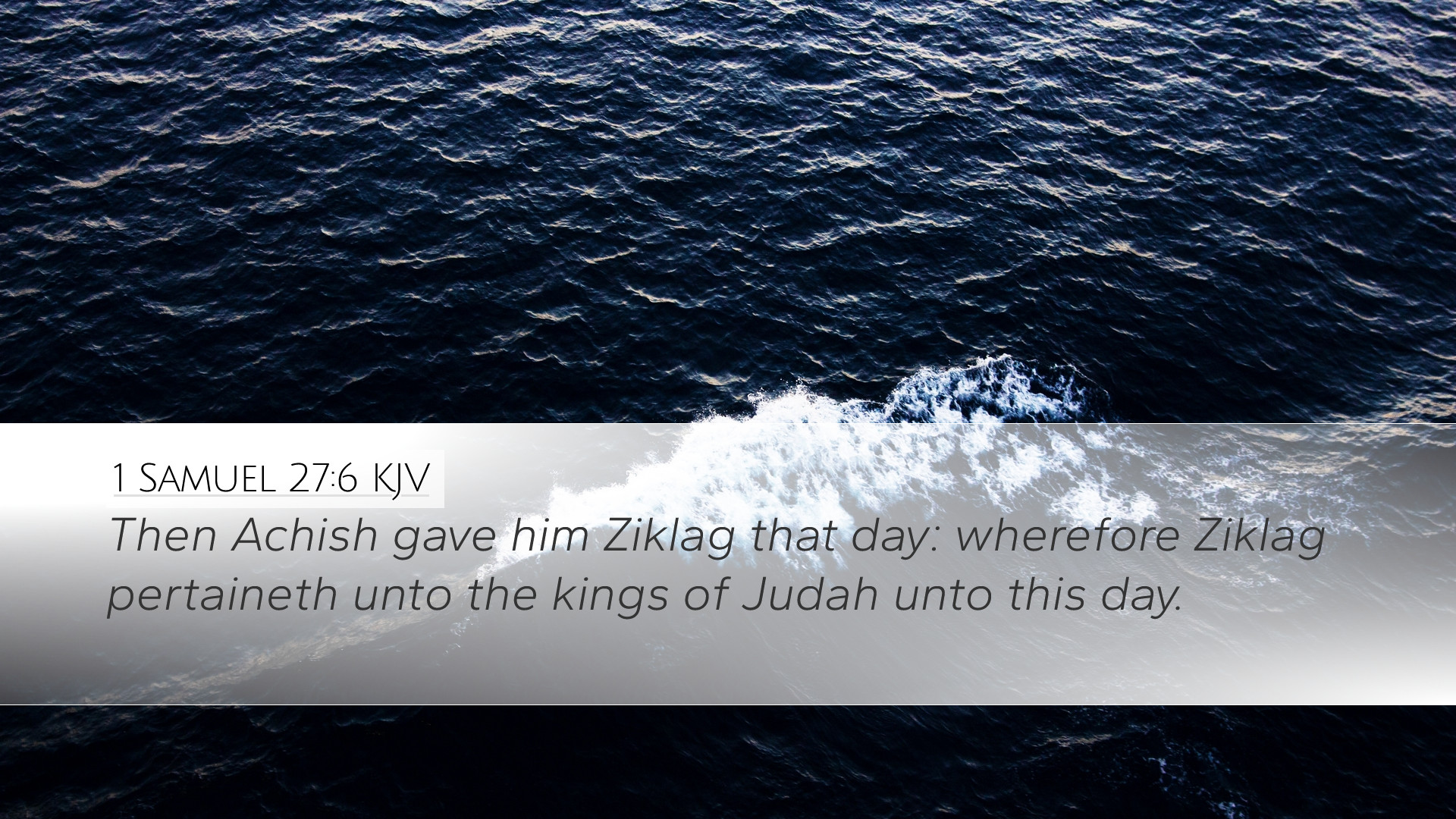1 Samuel 27:6 Commentary Summary
Verse Context: 1 Samuel 27:6 states, "Then Achish gave him Ziklag that day: wherefore Ziklag pertaineth unto the kings of Judah unto this day." This verse marks a significant moment in David's saga, as he becomes a southern stronghold in Philistine territory.
Historical Background
The historical context of this passage reveals the complexities of David's relationship with both his own people and the Philistines. David, fleeing from King Saul, sought refuge among the enemies of Israel. Achish, the Philistine king of Gath, granted David the city of Ziklag, providing both protection and a semblance of legitimacy.
- David's Deception: Matthew Henry highlights that David's alignment with Achish was pragmatic, stemming from his desperate circumstances. He utilized diplomacy to secure his position.
- Impact on Judah: Albert Barnes notes the historical significance of Ziklag, as it later became an important city for the tribe of Judah, indicating God's providence in David's life even during times of apparent compromise.
- God's Sovereignty: Adam Clarke emphasizes God's sovereignty over David's life, demonstrating that even amidst David's fears and struggles, God was orchestrating events for His ultimate plan.
Theological Insights
This passage evokes various theological themes, particularly concerning God's guidance, human frailty, and the providence woven through the lives of His chosen leaders.
1. God’s Guidance in Unlikely Places
Matthew Henry suggests that David's choice to align with Achish, although questionable, reflects a deep human need for protection and community — even when found among the enemy. This shows that God can work through our imperfect decisions.
2. The Complexity of Human Choices
Albert Barnes points out that the episode reveals the complexities of moral decision-making faced by those in leadership. David's actions remind readers that even the greatest leaders have moments of moral ambiguity.
3. Divine Providence
Adam Clarke emphasizes that God's providence is not limited to the ideal choices we make. The best-laid plans may not always align with divine purposes; rather, God can maneuver through human errors to create His desired outcomes.
Practical Applications
This verse and its commentary provide vital lessons for pastors, theologians, and students of the Bible:
- Trusting in God’s Plan: In moments of uncertainty, believers are encouraged to trust that God is at work, even when circumstances seem challenging.
- Seeking Refuge Wisely: David sought shelter in potentially dangerous alliances. Followers of Christ must be diligent in their relationships and the alliances they form, reflecting on their impact on their faith journey.
- Understanding God’s Sovereign Will: The narrative teaches that God often works through circumstances we may not fully comprehend, reminding us that our understanding is limited compared to God’s eternal perspective.
Conclusion
In summary, 1 Samuel 27:6 encapsulates a critical juncture in David’s life. Through the synergy of commentary from Matthew Henry, Albert Barnes, and Adam Clarke, we observe that God’s hand is at work amidst human frailty and complex moral landscapes. This serves not only as a historical reminder of David’s journey but also as an enduring message of providence, calling believers to remain steadfast in faith, even when the challenges of life feel overwhelming.


